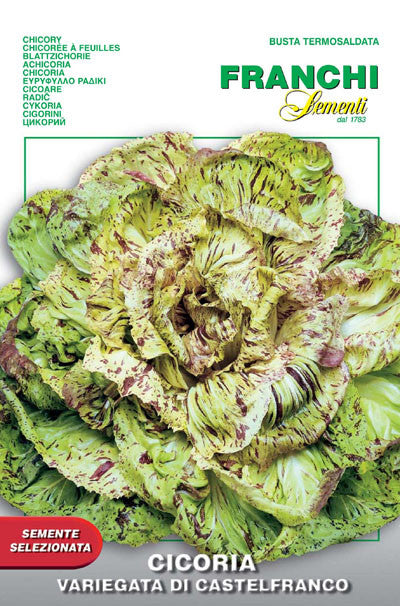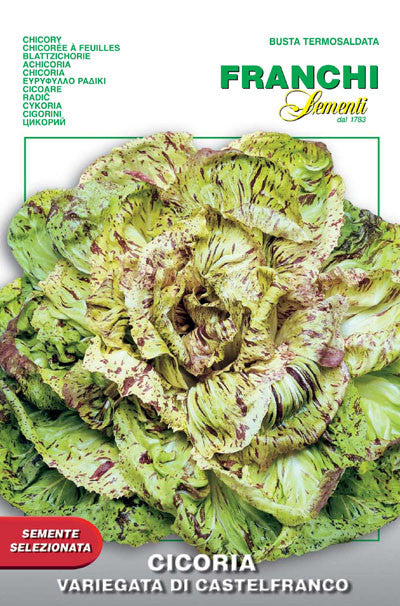PO Box 3908, Lawrence, KS 66046
seeds@growitalian.com
Call (785) 748-0959
1
/
of
1
Regular price
$5.50
Regular price
Sale price
$5.50
Unit price
/
per
Couldn't load pickup availability
Radicchio di Castelfranco. Round crunchy closed head. Variegated with beautiful red & light green markings. Lovely in the salad bowl. Fall planting is best for full-size plant, anytime for baby. If planting in the spring, use transplants so as to be able to harvest before full heat of summer. This is easy to grow and very consistent in producing a nice head. 8 gram packet, approx. 5,000 seeds.
To see our growing guide for chicory and radicchio, click here.
Share
Radicchio di Castelfranco (40-5)
Radicchio di Castelfranco (40-5)
Regular price
$5.50
Regular price
Sale price
$5.50
Unit price
/
per
Couldn't load pickup availability


